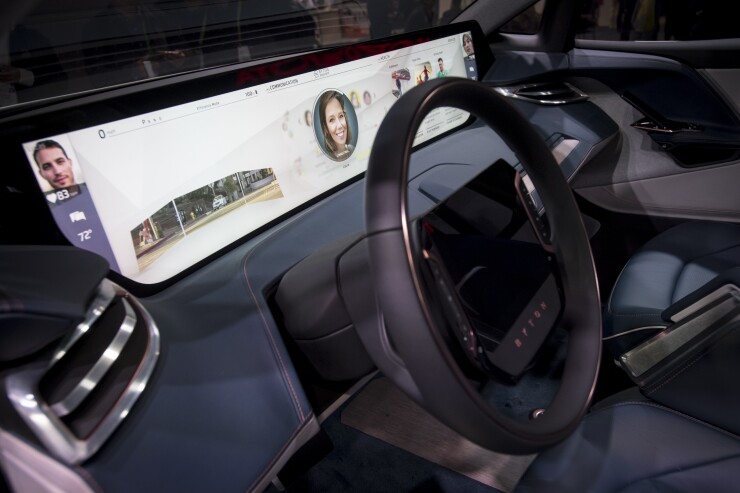One-quarter of drivers report that Advanced Driver Assistance Systems and accompanying alerts are annoying or bothersome, according to new research from J.D. Power.
The company's 2019 U.S. Tech Experience Index study, comprising a survey of 20,000 users of 38 different kinds of driver assistance systems, finds that when drivers find alerts irritating, three in five will disable the systems. A range of in-car digital platforms are measured as part of the survey, including entertainment and connectivity; collision protection; comfort and convenience; driving assistance; smartphone mirroring; and navigation.
The lowest-rated safety technology is lane-keeping and centering systems, with a quarter of these users complaining that the alerts are annoying or bothersome. Still, there is a spread for particular brands' technologies -- from as low as 8% dissatisfaction for one company to more than 30% with another.

"Automakers are spending lots of money on advanced technology development, but the constant alerts can confuse and frustrate drivers," said Kristin Kolodge, Executive Director of Driver Interaction & Human Machine Interface Research at J.D. Power. "The technology can't come across as a nagging parent; no one wants to be constantly told they aren't driving correctly."
However, differences between brands may become negligible soon. The major tech players are making big inroads into the vehicle, with nearly seven in 10 respondents saying they have Apple CarPlay and/or Android Auto in their vehicle. In fact, ease of use for built-in apps is the lowest-performing attribute in the entertainment and connectivity category.
"It's essential that the industry recognize the importance of an owner's first experience with these lower-level automated technologies because this will help determine the future of adoption of fully automated vehicles," Kolodge concludes.





